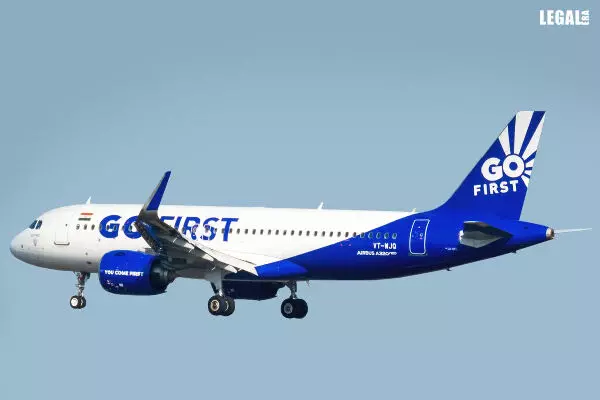- Home
- News
- Articles+
- Aerospace
- Artificial Intelligence
- Agriculture
- Alternate Dispute Resolution
- Arbitration & Mediation
- Banking and Finance
- Bankruptcy
- Book Review
- Bribery & Corruption
- Commercial Litigation
- Competition Law
- Conference Reports
- Consumer Products
- Contract
- Corporate Governance
- Corporate Law
- Covid-19
- Cryptocurrency
- Cybersecurity
- Data Protection
- Defence
- Digital Economy
- E-commerce
- Employment Law
- Energy and Natural Resources
- Entertainment and Sports Law
- Environmental Law
- Environmental, Social, and Governance
- Foreign Direct Investment
- Food and Beverage
- Gaming
- Health Care
- IBC Diaries
- In Focus
- Inclusion & Diversity
- Insurance Law
- Intellectual Property
- International Law
- IP & Tech Era
- Know the Law
- Labour Laws
- Law & Policy and Regulation
- Litigation
- Litigation Funding
- Manufacturing
- Mergers & Acquisitions
- NFTs
- Privacy
- Private Equity
- Project Finance
- Real Estate
- Risk and Compliance
- Student Corner
- Take On Board
- Tax
- Technology Media and Telecom
- Tributes
- Viewpoint
- Zoom In
- Law Firms
- In-House
- Rankings
- E-Magazine
- Legal Era TV
- Events
- Middle East
- Africa
- News
- Articles
- Aerospace
- Artificial Intelligence
- Agriculture
- Alternate Dispute Resolution
- Arbitration & Mediation
- Banking and Finance
- Bankruptcy
- Book Review
- Bribery & Corruption
- Commercial Litigation
- Competition Law
- Conference Reports
- Consumer Products
- Contract
- Corporate Governance
- Corporate Law
- Covid-19
- Cryptocurrency
- Cybersecurity
- Data Protection
- Defence
- Digital Economy
- E-commerce
- Employment Law
- Energy and Natural Resources
- Entertainment and Sports Law
- Environmental Law
- Environmental, Social, and Governance
- Foreign Direct Investment
- Food and Beverage
- Gaming
- Health Care
- IBC Diaries
- In Focus
- Inclusion & Diversity
- Insurance Law
- Intellectual Property
- International Law
- IP & Tech Era
- Know the Law
- Labour Laws
- Law & Policy and Regulation
- Litigation
- Litigation Funding
- Manufacturing
- Mergers & Acquisitions
- NFTs
- Privacy
- Private Equity
- Project Finance
- Real Estate
- Risk and Compliance
- Student Corner
- Take On Board
- Tax
- Technology Media and Telecom
- Tributes
- Viewpoint
- Zoom In
- Law Firms
- In-House
- Rankings
- E-Magazine
- Legal Era TV
- Events
- Middle East
- Africa
NCLT Allows 60-Day Extension To Go First Airlines For Insolvency Resolution

NCLT Allows 60-Day Extension To Go First Airlines For Insolvency Resolution
The Indian low-cost carrier exhausted the maximum limit of 330 days
The Delhi bench of the National Company Law Tribunal (NCLT) has granted a 60-day extension to Shailendra Ajmera, Resolution Professional (RP) of Go First Airlines, to complete the company’s Corporate Insolvency Resolution Process (CIRP).
A Coram of Mahendra Khandelwal (judicial member) and Sanjeev Ranjan (technical member) allowed the extension in the interest of the stakeholders. The extension will be effective till 03 June.
Under the Insolvency and Bankruptcy Code, a company gets 180 days to complete the process before the liquidation begins.
However, as per Section 12 of the IBC, the tribunal can grant 90 days extension. The maximum time for completing the resolution process is 330 days. If the RP seeks an extension beyond that, the NCLT can grant another 60-day extension.
The Indian low-cost airline exhausted the maximum limit of 330 days on 04 April. Later it approached the tribunal through Khaitan & Co, seeking an extension under exceptional circumstances.
Thus, relying on the order of the Supreme Court in the Essar Steel case, a special extension was permitted by the NCLT. This eliminated the mandatory 330-day deadline, and the two resolution plans were finalized.
Go First initiated voluntary insolvency due to losses allegedly for faulty engines supplied by the American company, Pratt & Whitney.
The airline claimed that the grounding of its aircraft increased from 31 percent in 2020 to over 50 percent in April 2023, causing a loss of over Rs.10,800 crores.
The company’s plea was admitted on 10 May, declaring a full moratorium.



